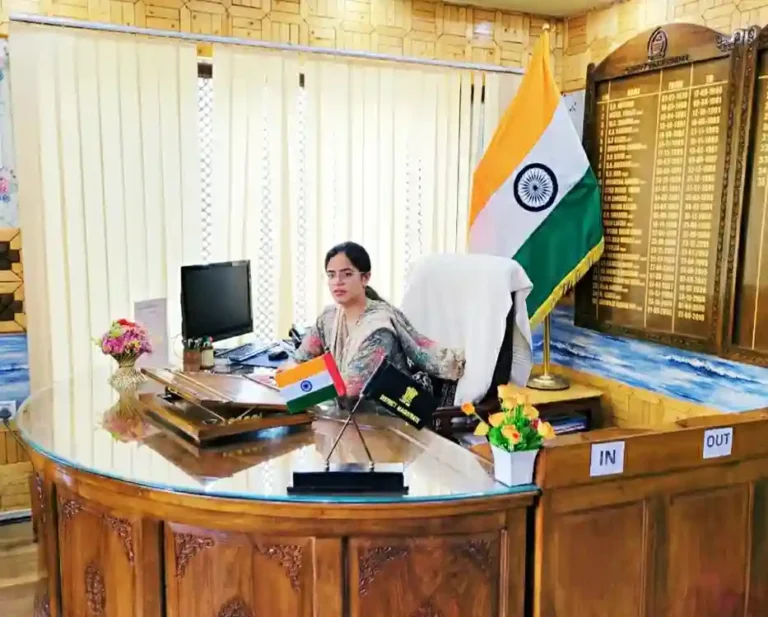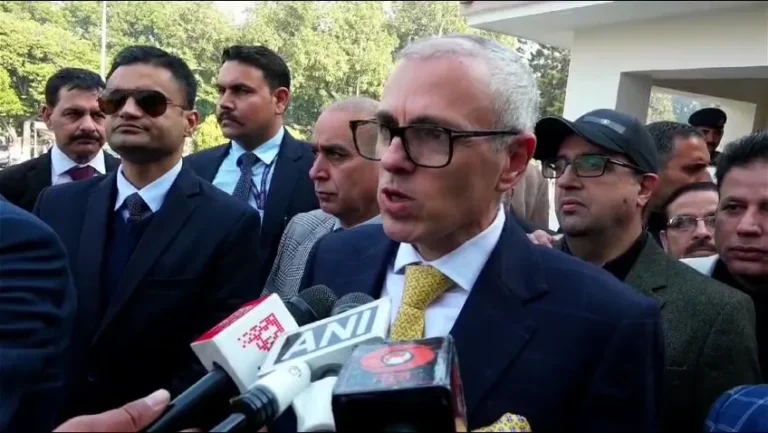Elderly Kolkata Man Loses Rs 2.6 Lakh to ‘Facebook Friend’ in Kashmir Trip Scam
In an era where social media connects people across the globe, it also opens doors for cybercriminals to exploit trust. A 73-year-old man from Kestopur, Kolkata, fell victim to a sophisticated scam, losing Rs 2.6 lakh to a woman he befriended on Facebook. The scam unfolded during a planned trip to Kashmir, highlighting the vulnerabilities of elderly individuals to online fraud. This article delves into the details of the incident, the modus operandi of the scammer, and the broader implications for digital safety.
The Incident: A Tale of Trust and Deception
The victim, a senior citizen from Kolkata’s Kestopur area, developed an online relationship with a woman he met on Facebook. Over time, their virtual bond grew, leading to plans for a joint trip to Kashmir starting April 1, 2025. The trip, initially perceived as a shared adventure, became the backdrop for a carefully orchestrated scam.
During the journey, the man entrusted his handbag, which contained his State Bank of India (SBI) debit card, to the woman. This act of trust proved costly. After returning to Kolkata on April 9, the victim’s son noticed unauthorized transactions totaling Rs 2,59,500 between April 10 and 14. Upon checking, the man discovered that his debit card had been swapped with another from a different bank. The woman had allegedly used the card to siphon off the funds.
The victim had shared his debit card PIN with the woman during the trip when he fell ill and needed assistance. This moment of vulnerability was exploited, allowing the scammer to execute the unauthorized transactions. Despite attempts to contact her, the woman remained unresponsive, cutting off all communication.
Police Action and Investigation
Distraught by the financial loss, the victim lodged a complaint at the Baguiati police station. The police registered a case under relevant sections of the Bharatiya Nyaya Sanhita (BNS), 2023, for cheating and criminal breach of trust. Preliminary investigations suggest that the woman is married and resides in Agarpara, a suburb of Kolkata. The police are actively pursuing leads to trace her and recover the stolen funds.
The case underscores the challenges law enforcement faces in tackling cyber-enabled fraud, where perpetrators exploit personal relationships and physical proximity to carry out their schemes. The investigation is ongoing, with authorities working to uncover whether the woman acted alone or as part of a larger network.
The Modus Operandi: Exploiting Trust
This scam highlights a common tactic used by cybercriminals: building trust through prolonged online interactions. The woman likely spent weeks or months cultivating a relationship with the victim, creating a false sense of familiarity and security. By proposing a joint trip, she gained physical access to the victim’s belongings, enabling her to swap the debit card and misuse it.
The use of a shared PIN during a moment of illness further illustrates how scammers exploit vulnerabilities. Elderly individuals, who may be less familiar with digital security practices, are particularly susceptible to such tactics. The swapped debit card—a physical card from another bank—ensured the victim remained unaware of the fraud until the transactions were discovered by his son.
Broader Context: Rising Cybercrime Targeting the Elderly
This incident is not isolated. Cybercrime targeting senior citizens is on the rise, with social media platforms like Facebook serving as fertile ground for scammers. According to reports, elderly individuals are often targeted due to their perceived trustfulness, limited technological literacy, and substantial savings. In 2024 alone, India saw numerous cases of online fraud, with losses running into crores of rupees.
For instance, a 72-year-old man from East Delhi lost Rs 40 lakh in a cryptocurrency scam after being lured by a social media advertisement. Similarly, a 58-year-old Kolkata resident was duped of Rs 20 lakh in an online investment scam that began with a Facebook ad. These cases highlight the diverse methods scammers employ, from fake investment schemes to impersonation and, as in this case, personal betrayal.
The Kashmir trip scam also reflects a hybrid approach, combining online deception with real-world interactions. By meeting the victim in person, the scammer added a layer of authenticity to the fraud, making it harder for the victim to suspect foul play until it was too late.
Lessons Learned: Protecting Against Social Media Scams
This incident serves as a stark reminder of the need for vigilance in online interactions. Here are key takeaways to protect against similar scams:
- Verify Identities: Always verify the identity of online acquaintances, especially before meeting in person or sharing personal information. Be cautious of individuals who avoid video calls or provide vague details about their background.
- Safeguard Financial Information: Never share debit or credit card PINs, passwords, or other sensitive information, even with trusted individuals. Use secure methods like UPI or mobile apps for transactions when assisting others.
- Monitor Accounts: Regularly check bank statements and enable SMS or email alerts for transactions. Prompt detection of unauthorized activity can limit financial losses.
- Be Skeptical of Offers: Be wary of unsolicited friend requests, overly friendly strangers, or lucrative opportunities that seem too good to be true. Scammers often use flattery or promises of rewards to gain trust.
- Report Suspicious Activity: If you suspect fraud, report it to the police and your bank immediately. In India, the cybercrime helpline (1930) provides assistance for reporting online fraud.
- Educate the Elderly: Families should educate elderly members about digital safety, including the risks of sharing personal information online or with strangers met through social media.
The Emotional and Financial Toll
Beyond the financial loss of Rs 2.6 lakh, the victim likely suffered significant emotional distress. For a senior citizen, losing hard-earned savings to someone they trusted can be devastating. The betrayal of a perceived friendship, coupled with the stress of navigating a police investigation, adds to the trauma.
This case also highlights the importance of family support. The victim’s son played a crucial role in detecting the fraud, underscoring the need for younger family members to monitor the financial activities of elderly relatives, especially those active on social media.
Conclusion
The story of the elderly Kolkata man duped of Rs 2.6 lakh is a cautionary tale about the dangers lurking in the digital world. As social media continues to bridge distances, it also creates opportunities for scammers to exploit trust and vulnerability. This incident calls for greater awareness, stronger digital literacy, and proactive measures to protect vulnerable populations, particularly the elderly.
The Baguiati police’s investigation may bring justice to the victim, but prevention remains the best defense. By fostering skepticism, safeguarding personal information, and staying informed about common scams, individuals can reduce their risk of falling prey to cybercriminals. As technology evolves, so must our strategies to stay safe in an interconnected world.
News Source Times Of India
You Might Also Like:
Farooq Abdullah Seeks Centre’s Help After Ramban Landslides
Schools in Kashmir Valley to Remain Closed on April 21 Due to Bad Weathe
Four Pakistani Stars Shine in ICC Women’s World Cup Qualifier 2025 Team of the Tournament






